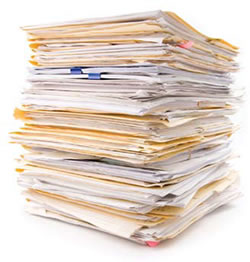Philadelphia is old, its streets and buildings and, most certainly, its politics. It also is a city of contradiction, as any lifelong Philadelphian, who shows love for it by doubting it and criticizing it and loathing it, will tell you. So it might be fitting that a young man, one who has spent less than a quarter of his life in this Quaker City and has nothing more than interest and an undergraduate degree from its largest university, should undergo a year long appraisal of its political status.
Just as Philadelphians can look wistfully back on its time as the “Workshop of the World” or the publishing capital of the country, so, too, can Republicans admire a time long since gone. After all, the GOP enjoyed more than a century of nearly uninterrupted rule over Philadelphia. As Lincoln Steffens put it in his famously, over-cited indictment of the city in 1905, “Philadelphia is corrupt and contented.” But, more acutely, it was the city’s Republicans who were contented.
Little more than fifty years later and the Republican Party’s hold was broken by legends of the city’s progressive movement who led an effective charge that began six decades of solid Democratic rule. Nothing was ever the same.
I. The situation: ‘I don’t believe, frankly, that a Republican can win’
“One of the really bad things that’s happened to this city is the demise of the Republican Party,” former city managing director Phil Goldsmith, now a management consultant, told me in a recent interview. “Because it eliminates competition.”
Beyond the mayoralty, Philadelphia hasn’t elected a Republican to any major citywide office since 1989, when Ron Castille was reelected district attorney. Even still, two years later he was very nearly run out of town by Democratic Mayor turned Republican mayoral candidate Frank Rizzo, who labeled Castille a “drunk” during their 1991 Republican mayoral primary, not long before Rizzo died of a massive heart attack.
There is excitement yet to be found in Philadelphia, indeed.
Before Philadelphia’s most recent mayoral Election Day, during which Democrat Michael Nutter would amass more than 82 percent of the vote, a former GOP mayoral nominee thought the outlook bleak.
“I don’t believe, frankly, that a Republican can win,” Sam Katz, who lost in 1999 and 2003 – and came in a distant third in the 1991 primary – told the Philadelphia Inquirer last fall. He is still trying to repay his 2003 campaign debt, despite the nearly $11 million that flowed into his campaign coffers to thwart eventual victor John F. Street, now a Temple University adjunct faculty member.
Al Taubenberger, Nutter’s Republican opponent – no Sam Katz, by most accounts – toiled along nonetheless.
“There’s no Republican or Democratic way to collect the trash,” Taubenberger told the Inquirer during the election.
Of the more than 1 million registered voters in Philadelphia, nearly 800,000 registered Democrats not only seem to think he’s wrong, but the roughly quarter million who voted against him don’t think Taubenberger should be collecting their trash at all. His plight is just the latest in a half century of Republican defeats in Philadelphia.
II. An outline of this paper
“This is the cradle of democracy,” said a Republican partisan who is trying to organize her neighbors in Fishtown. “But democracy has been dead in Philadelphia for a long time.”
True, the GOP bargains for crumbs in many cities, but few places are as hostile to Republicans as the Cradle of Liberty. Is that a Republican failing or a Democratic success? Is it even reasonable to entertain a conversation about Philadelphia hosting a viable two party system or is that a dream of the past?
What follows is a study pursuing those answers for one of the most dynamic, interesting and under-studied political environments in the country. In the past half year, I have spoken with more than 20 politicians, academics and journalists who have devoted their lives, their minds and often their reputations to Philadelphia. Sometimes it was for an hour, often it was more, regularly we came upon smiles, on occasion we traversed ideological and generational lines, but always, we determined a sustainable and competitive Republican Party is the healthiest cure for pay-to-play politics, corruption and inefficiency.
My research has determined that Republicans can find success with a socially liberal candidate, a vulnerable Democratic administration, an environment without racial upheaval and a subdued national political climate.
This paper is broken into five sections: part one, diagnosing the present; part two, reviewing the past; part three, comparisons with successful urban Republican parties, and part four, how this city differs. Finally, on the back of eight months of research and 25 hours of interviews, part five features findings and conclusions about the Republican Party in Philadelphia.

